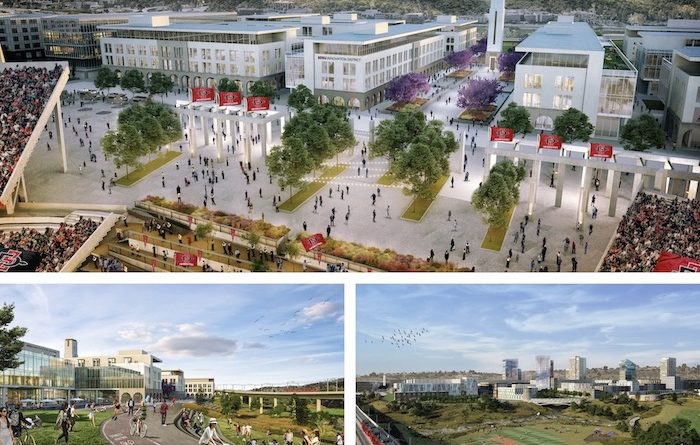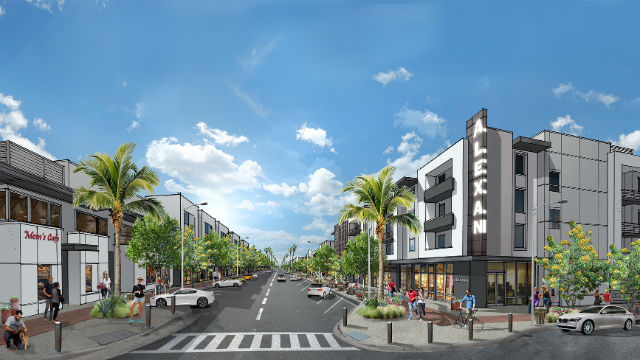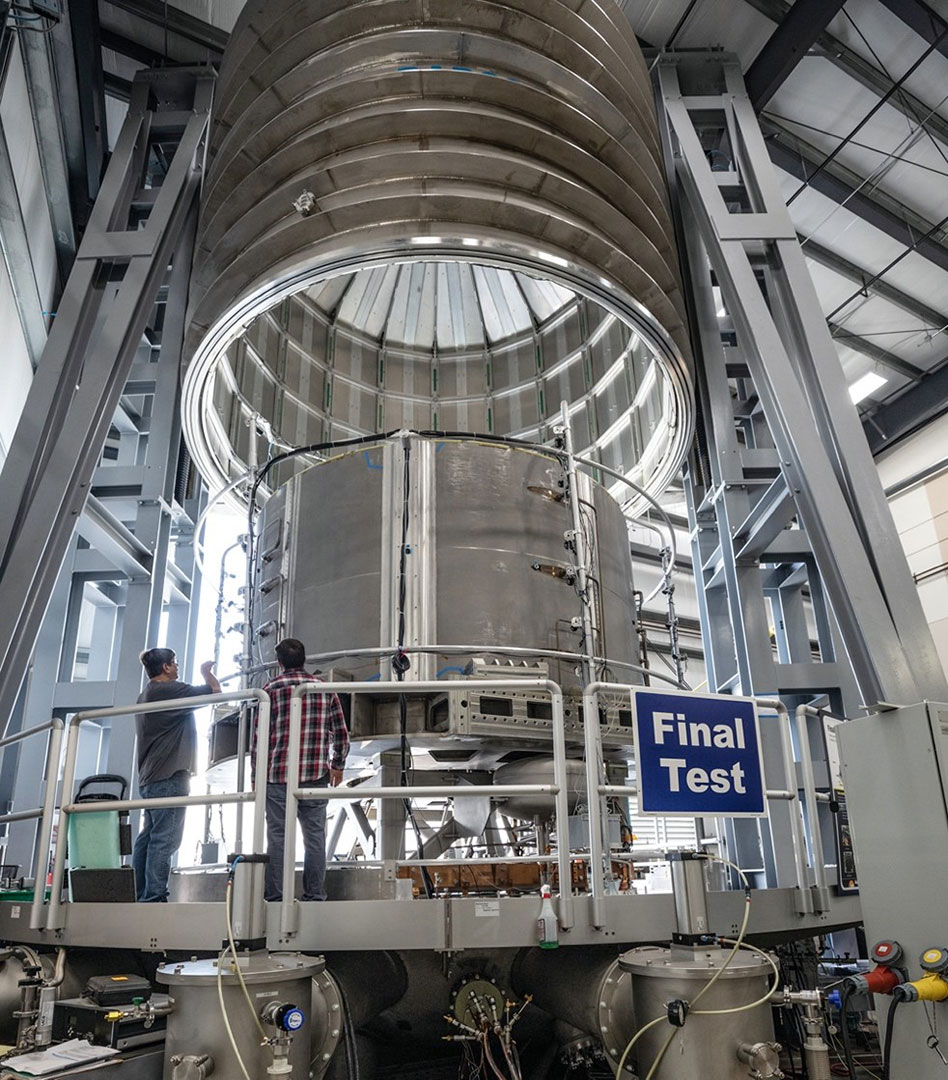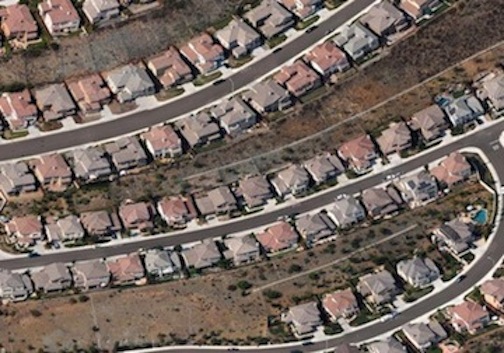Daily Business Report: Monday, Oct. 24, 2022
SDSU Mission Valley goes online
By Vince Meehan | San Diego Community Newspaper Group
SDSU Mission Valley is ready for its close-up. It was promised that the new stadium built on the site of the former Qualcomm arena would be ready for Aztec football in 2022 and here we are. Football returned to Mission Valley on Sept. 3, and SDSU Mission Valley won an impressive sprint to the finish line in a race that had many San Diegans skeptical of success. But Snapdragon Stadium is just the first step in a massive build out that will be taking place for the next 10 to 15 years. The finished plan will not only feature an innovation center for students and non-students alike, but also plenty of support retail and housing that will benefit the San Diego community as a whole.
Gina Jacobs is the associate vice president, Mission Valley Development at San Diego State University and is pleased at the progress being made at the site. She said that much of the open area that is currently onsite will be utilized as a parking area for the stadium until permanent facilities are completed.
“The site development is ongoing, all the grading to bring the development parcels up out of the flood plain is being done,” Jacobs said. “In the short term – before we start construction on any building including the residential or the innovation district – those areas will serve as surface parking for the stadium event. Long term, we’re planning all of the great residential, innovation district, hotels, retail and all of that to get started with construction early next year.”
All this construction comes as the result of Measure G, which was approved by San Diego voters in November of 2018. Talk of a new stadium for San Diego dominated the election, but Measure G also included plans for an innovation center where private enterprises such as biotech firms could open offices alongside new SDSU facilities creating a “learn and intern” opportunity. It also allows SDSU to expand its academic as well as economic impact on the region and encourage students to stay in San Diego after graduating.
Jacobs said the next piece of the puzzle to complete will be the river park portion of SDSU Mission Valley. “The next big asset that will come online will be the river park, we began construction earlier in the year on that, but it will really go in earnest once the stadium is complete. And that is going to be completed by the end of next year.”
This river park will include recreational fields, a children’s play area, hike and bike access and even an outdoor classroom.
Rob Hutsel is the President & CEO of the San Diego River Park Foundation, and has been a tenacious advocate for maintaining the sanctity of the river area for years. He has monitored the planning of the river park from the get-go and is pleased that this concept is becoming a reality.
“The San Diego River Park Foundation is thrilled to see work starting on the river park at SDSU Mission Valley,” Hutsel said. “SDSU Mission Valley’s park is a key piece in the vision of a regional greenbelt in Mission Valley and for the entire 52-mile-long San Diego River Park. After years of advocacy by the San Diego River Park Foundation, civic discussion, and an election, it is truly amazing to see park construction starting.”
As for the other aspects of the SDSU Mission Valley plan, Jacobs said that these build outs will continue according to time lines that play out as the different partnerships fall into place. “For the rest of it, we’re in the process of selecting developers to initiate the first of the residential projects, the first of the affordable housing projects, and the first of the innovation district projects. The first of the residential and retail – because there will be ground floor retail in the first residential building – that’s anticipated to be about 450 units of residential and about 30,000 square feet of retail. And then, there is a first affordable project that will be about 100 units, and then a first innovation district project that will be two or more buildings at about 300,000 square feet.”
In the mean time, the stadium will continue to add events that will fulfill its legacy as a community facility that serves the San Diego community as promised. Jacobs says that relationships are being created to ensure that Snapdragon stadium will be able to feature entertainment events throughout the year. “Obviously it’s a football stadium that’s going to host the Aztecs, but it’s also community access so we already announced our first concert in October with Jason Mraz. We have tenants that also are going to call Snapdragon home including the San Diego Wave, the San Diego Legion, and there will be lots of other events happening at the stadium for the whole community.”
San Diegans can monitor the progress of SDSU Mission Valley via live construction cams at: https://missionvalley.sdsu.edu/community-updates
Top Photos: Renderings, clockwise, from top: SDSU Innovation District, SDSU River Park and Innovation District residences, San Diego River Park (Courtesy of SDSU)




